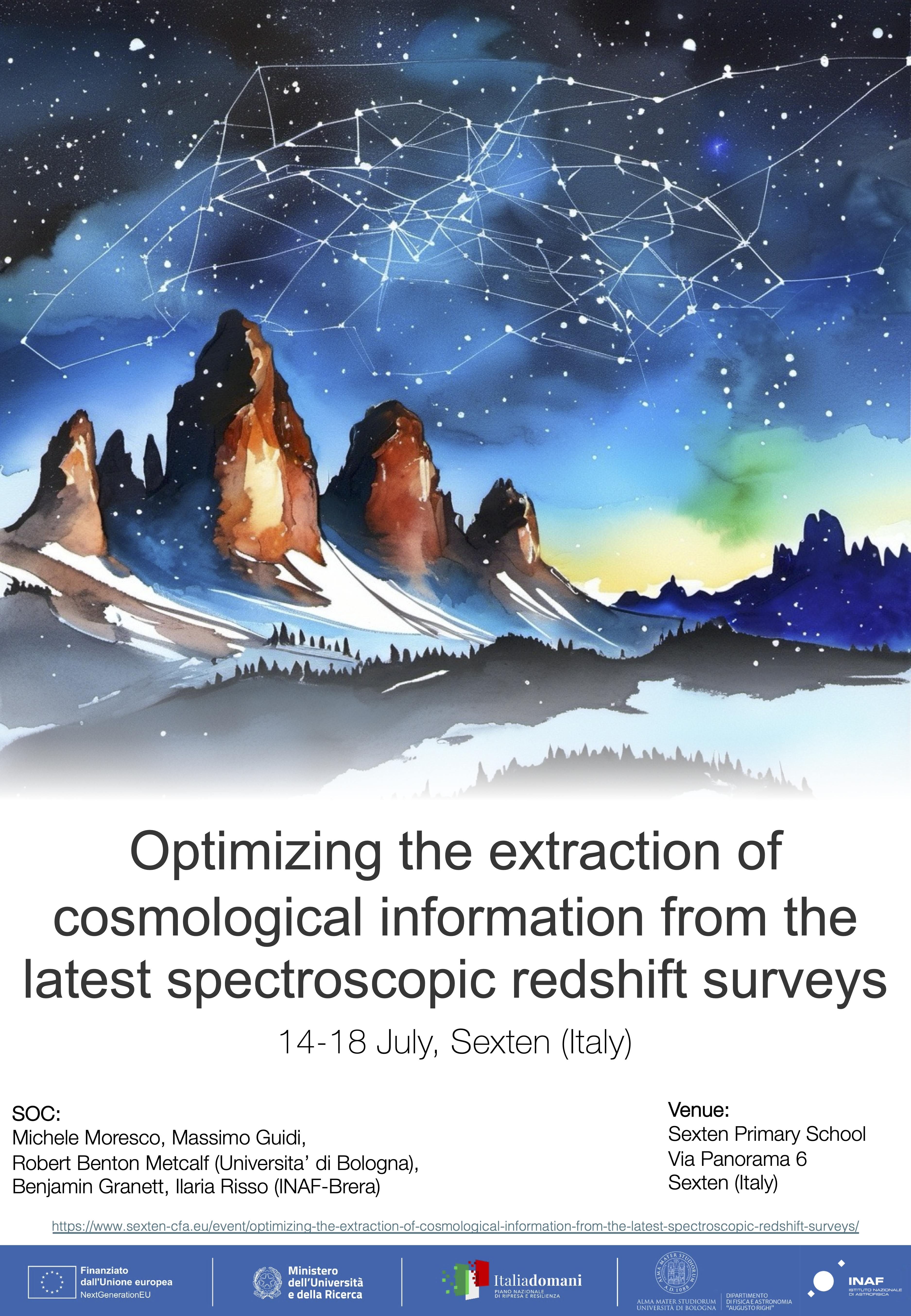This conference has been organized in the context of the grant PRIN-MUR 2022 2022NY2ZRS 001 (CUPJ53D23001650006) "Optimizing the extraction of cosmological information from Large Scale Structure analysis in view of the next large spectroscopic surveys" supported by Next Generation EU.
Observational cosmology is approaching a new era with a surge of spectroscopic galaxy redshift surveys all aimed at understanding the accelerated expansion of the Universe. A few notable examples are the Dark Energy Spectroscopic Instrument (DESI) and the ESA Euclid mission, which are obtaining their first scientific results. The primary probe of these surveys will be the baryon acoustic oscillations (BAO) imprinted in the large-scale structure (LSS) traced by galaxies. Galaxy clustering and the BAO probe of the expansion history of the Universe were proven by the hugely successful surveys of the last decade (BOSS, eBOSS, WiggleZ). In combination with the Planck cosmic microwave background analyses, the advancements in theory and analysis methods of LSS with these surveys brought us to the current point of achieving percent-level constraints on the parameters that describe the flat ΛCDM cosmological model. However, the increasingly precise measurements have only deepened the enigma surrounding the Λ term and dark energy that has been open for over 30 years. This meeting aims to discuss the latest advancements in the analysis of the LSS, exploiting both lower- and higher-order statistics from an observational and theoretical point of view, and also considering all the issues and mitigation strategies that need to be faced in real data analysis.
The meeting is divided into three slots, one related to "Observations", one related to "LSS analysis", and one on "Simulations and Machine learning for LSS". We plan to have invited and contributed presentations, as well as a panel discussion.
Important information
- The participation is limited to a maximum of 50 participants due to venue capacity constraints
- The conference fee is € 230,00 (€ 200,00 for students)
Important deadlines
- Registration opening and call for abstract submission: January 22nd, 2025
- Deadline for registration and abstract submission:
March 9, 2025March 23, 2025 - Selection of speakers and scientific programme: April 7th 2025
- Dida Markovic (JPL)
- Will Percival (University of Waterloo)
- Hector Gil Marin (Universitat de Barcelona)
- Zachary Slepian (University of Florida)
- Francisco Villaescusa-Navarro (Simons Foundation)
- Carmelita Carbone (INAF)
Panel discussion lead by Luigi Guzzo (University of Milan) and Enzo Branchini (University of Genova).
.png)
